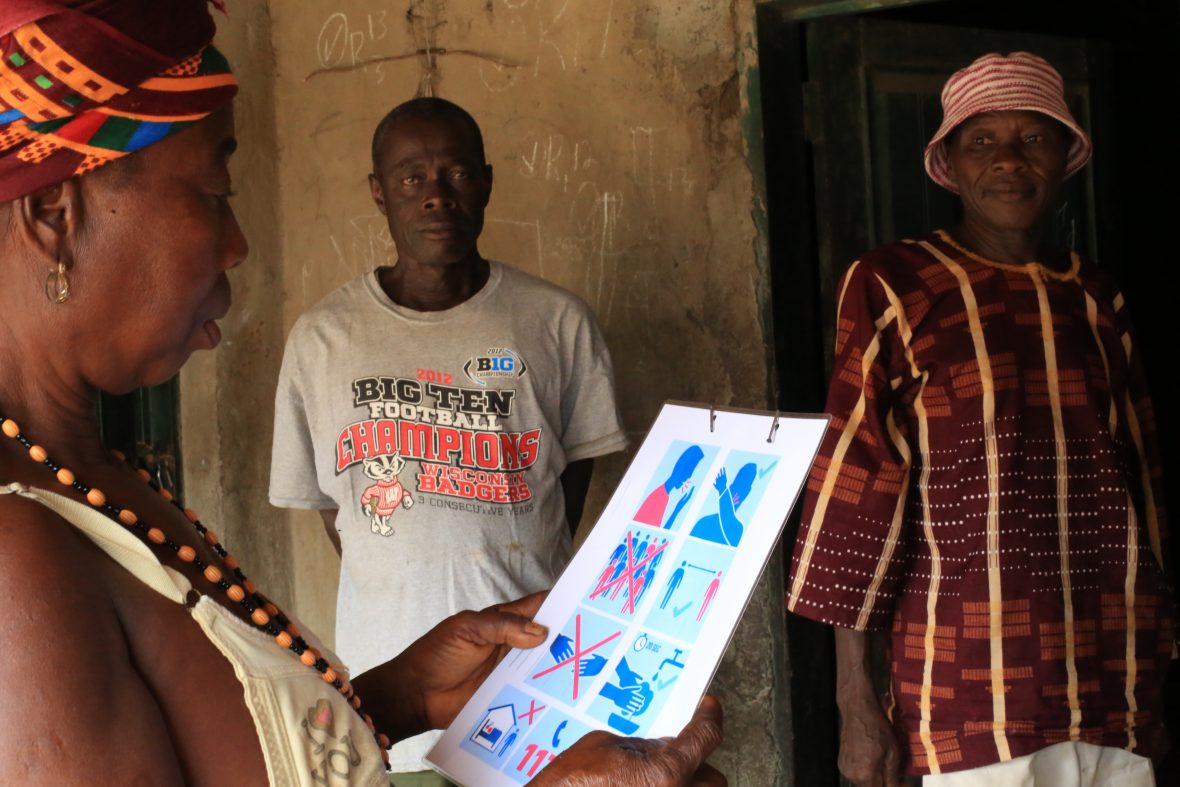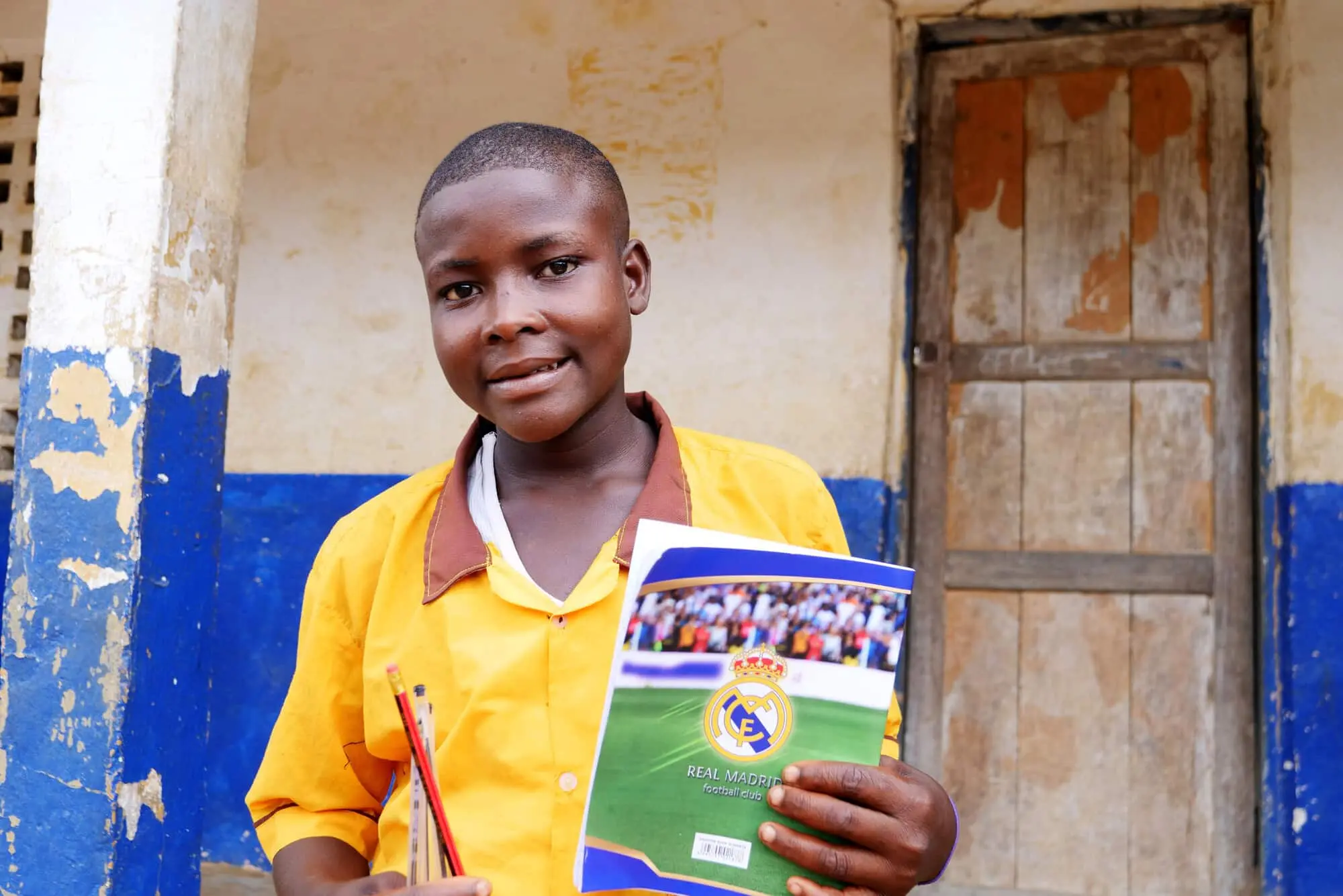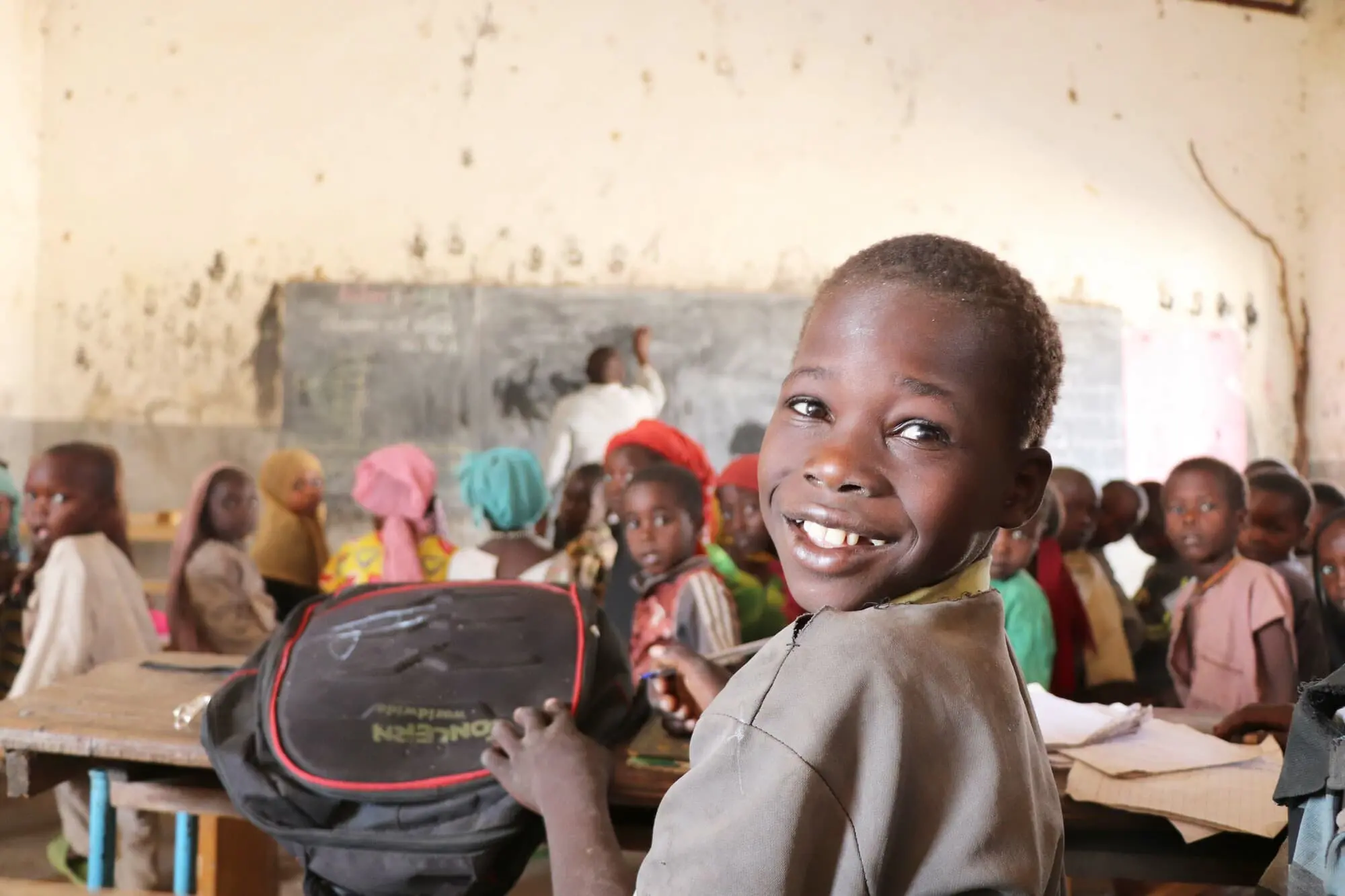News
How does education affect poverty? It can help end it.
Access to high-quality primary education and supporting child well-being is a globally-recognized solution to the cycle of poverty.
Read MoreLiteracy, as part of education, is a fundamental human right. Yet there are, according to UNESCO, 781 million illiterate adults (over the age of 15) around the globe. Over 63% of those adults are women. In countries like Niger, literacy rates are as low as 24%.
Fundamental human rights are just that — fundamental. These figures are also important because literacy (and numeracy) is one of the key solutions to ending poverty. As former UNESCO Director-General Irina Bokova said in 2015: “The future starts with the alphabet.”
"The future starts with the alphabet." — Irina Bokova, former UNESCO Director-General
Here are 6 benefits of literacy as a tool for breaking the cycle of poverty.
Growing research shows positive correlations between adult literacy and lower infant mortality rates. A 2002 study in Bolivia showed that women who attended a literacy program were more likely to seek medical help for themselves and their children when needed. They were also more likely to adopt more preventive health measures.
Literate patients also have an easier time following instructions from their doctors, and literacy is a key benefit during a health crisis. During the West African Ebola epidemic and the major Ebola outbreak in the DRC, being able to read meant the difference between life and death.
We continue to see this now during the global COVID-19 pandemic: With so much misinformation about the novel coronavirus, one of the best — and most cost-effective — responses we have is education, including educating our communities on prevention, symptoms, and what to do if they need treatment. Posters, leaflets, and other materials were created and shared in each of the countries where Concern works, meaning that literacy is one of the key tools in keeping communities safe and healthy.

As many of us realize after we’ve graduated, learning is a lifelong journey. The more we learn, the more we’re able to adapt to a fast-changing world. The more we’re able to adapt, the more we can continually improve our standard of living and lead longer, healthier, and more creative lives.
Literacy and numeracy are a prerequisite for a broader education. Students who struggle to read (often due to language barriers in the classroom) are more likely to drop out of school before they can complete a basic education. This can set off a vicious cycle: literacy rates increase as levels of completed schooling increase.
Think about it: When was the last time you learned a new skill? Or did something new for the first time? Chances are you learned that new skill or task because you could read instructions, books, or other resources to guide you through the process. When we have the confidence to read, we have the confidence to learn, both in and out of the classroom.
Literacy is a powerful tool against poverty. If all students in low-income countries had basic reading skills, 171 million people could escape extreme poverty. Illiteracy comes at a high price. According to the World Literacy Foundation, illiteracy costs the global economy $1.5 trillion annually.
Currently, there are 192 million people unemployed around the world. Even more people have jobs but struggle with poor pay or poor working conditions (or both). In both cases, a lack of basic literacy and numeracy skills means that many people are immediately disqualified from a high number of decent livelihoods.
Fact: Illiteracy costs the global economy $1.5 trillion annually.
As part of lifelong learning, literacy skills don’t just mean better job opportunities now. They also set people up with the ability to develop their skills and find better livelihoods in the future.

“Every literate woman marks a victory over poverty,” said former United Nations Secretary-General Ban Ki-moon. Women are the most powerful agents of change in their communities, and that power is even greater when they can read. For every 10% increase of female students in a country, the gross domestic product increases by an average of 3%.
This is because literate women are also more independent and engaged within their communities. They are also more likely to send their children (especially their daughters) to school. Lenason Dinyero, a farmer and chairman of a local fathers’ group in Malawi, works to save young girls from child marriage so that they can stay in school. As he explains it: “A literate generation will benefit the entire community.”
Illiteracy, according to Ban Ki-moon, “weakens communities and undermines democratic processes through marginalization and exclusion. These and other impacts can combine to destabilize societies.”
When citizens are literate, they’re more able to follow local politics and be informed of the issues that matter to their communities. They’re also more likely to vote and find other ways of participating in their local democracy.
"Illiteracy weakens communities and undermines democratic processes through marginalization and exclusion. These and other impacts can combine to destabilize societies." — Ban Ki-moon, former UN Secretary-General
Literacy is also a powerful tool in post-conflict situations. A 2004 study in Colombia had people who were affected by conflict write down their experiences and share them with others. By doing this, they were more able to work through trauma and build resilience.
If nothing else, literacy builds self-esteem. Readers who struggle are more likely to have difficulty expressing themselves, even verbally. This can lead to anxiety, depression, or other issues that impact an overall quality of life.
The more able a person is to express themselves, the greater their confidence, their self-esteem, and their chance at living a happy, healthy life.

Concern’s work towards education for all is rooted in building literacy and numeracy in the communities we work with. In countries like Afghanistan, Somalia, Sierra Leone, and Haiti, we’ve found that a comprehensive literacy program that includes teacher training and mentoring programs has resulted in significant improvement on students’ reading fluency.
Concern’s program in Saut d’Eau, Haiti provided training, coaching, and mentoring to help teachers in their instruction of Creole literacy. Between 2014 and 2016, reading fluency for students in Grade 3 improved by 550%.
But our work doesn’t stay in the classroom. A child’s school, home, and community all play a role in the holistic environment in which they learn. Access to reading materials, especially at home, is important for kids, and we also work with parents to help build a home environment that supports performance in school. As part of our work in Liberia, we’ve found that teaching practices that include reading assignments to be done at home saw a 58% improvement in reading scores for students.